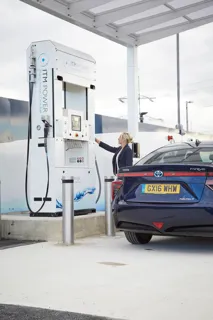By Jon Friedenthal, Fleet consultant, Arval
If the headlines are to be believed, we are about to enter a period of fuel price volatility, with predictions of both rising oil prices pushing up pump prices and a supermarket fuel price war.
In times such as these – indeed, at any time – our view is that fleet decision-makers should not be distracted from fundamental fuel management policies.
Effective fuel management should not really depend on pump prices because they only have a surprisingly small part to play in minimising fuel spend.
In fact, by adopting the right policies, it is often possible to almost neutralise any rises in petrol and diesel prices while maximising the advantages when they fall.
The fundamentals of fuel management depend more on factors such as ensuring you are selecting vehicles that deliver good fuel economy, that they are being driven in a way that preserves fuel use, and they are kept in a condition that enables them to maintain efficiency.
However, the single most important step in any fuel policy is to take control of fuel spend while gathering high quality data about fuel economy – and by far the easiest and best way to do this is through a fuel card.
With the information provided, you will be able to identify which vehicles and drivers are performing well and which are not, allowing you to take action where needed.
Some fleets take a proactive approach using their fuel card, utilising their data and monitoring the performance of drivers against the manufacturer’s claimed consumption figures.
Taking this approach allows them to provide guidance to those performing outside of an acceptable range and shows drivers this important cost is being thoroughly monitored.
And, when it does come to pump prices, a fuel card will allow you to potentially guide drivers towards cheaper fuel sites and take advantage of lower pump prices when they occur.
That means you can concentrate your spending at outlets that you know to be cheaper or at which you have some kind of discount or rebate scheme in place.
By following these steps, you will ensure that you are doing everything to minimise your fuel spend.

















Login to comment
Comments
No comments have been made yet.